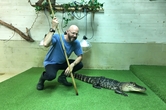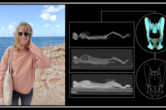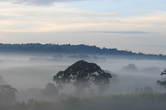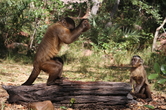Little penguin, lots of scales
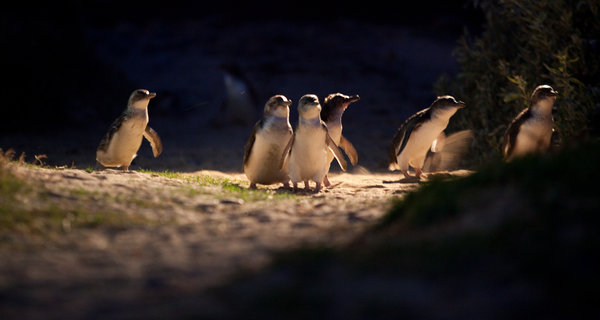
A new study published in Nature's Open Access journal Scientific Reports has shown that foraging sequences of the world's smallest penguin exhibit a complex fractal structure through time.
Complex dive patterns shed light on adaptive behaviour
In the study, an international team of researchers from Japan, France and Australia led by CICASP's own Dr. Andrew MacIntosh used a relatively novel analytical paradigm (temporal fractal analysis) to examine a high-resolution data set collected via bio-logging, i.e. using animal attached data recording devices, from Australia's only penguin, the little (a.k.a. fairy, blue) penguin (Eudyptula minor). This approach allowed the researchers to examine tens of thousands of data points in the foraging sequences of numerous individual birds - the most ever examined in studies of fractal time in any free-living animal. The observed fractal properties - the dive pattern geometry found at each time scale looks remarkably similar to that found at any other scale within a certain range of temporal windows - suggest the presence of some general organizing principle underlying temporal patterns of penguin behaviour. The ubiquity of fractal patterns and processes found in living organisms strongly suggests their adaptive nature, and from what we already know about the way animals move through their environments, fractal patterns may provide an optimal foraging solution. That means that if this dive sequence complexity is lost – think of the stereotypical repetitive and functionless swimming patterns displayed by penguins and seals confined to small tanks in some zoos and aquaria – it may be indication that little penguins are operating in a sub-optimal state. This may have major implications concerning the viability of individuals operating in a changing environment, to which fractal patterns are well-attuned. The application of fractal tools opens up opportunities for more subtle and sensitive investigations of species used as indicators for climate and environmental change, such as the penguins examined here.
This study was conducted by researchers at the Kyoto University Primate Research Institute in Japan, the Institut Pluridisciplinaire Hubert Curien and the Universite de Strasbourg of the Centre National de la Recherche Scientifique in France, and Phillip Island Nature Parks in Australia.
News image courtesy of Phillip Island Nature Parks.
For more information, access the article here at Scientific Reports.
